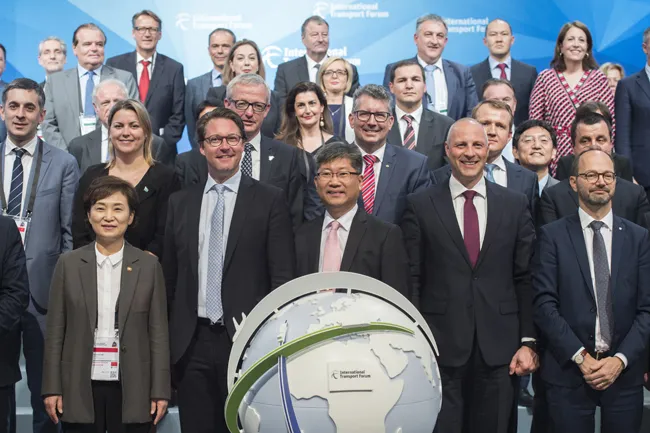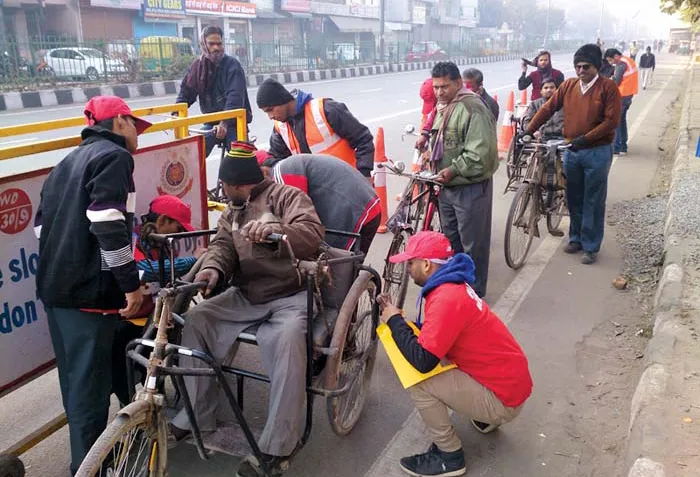The Africa Regional Seminar and Workshop delivers key recommendations on performance-based contracts. The International Road Federation (IRF) Geneva has helped co-organise the Africa Regional Seminar and Workshop on "Performance-based Contracts for Roads." This was organised and run jointly with local support from the Tanzania Ministry of Works, Transport, and Communications, the Road Fund Board, TANROADS, the Tanzania Transportation Technology Transfer Centre and the Tanzania Roads Association (TARA). Also
October 18, 2016
Read time: 3 mins
The Africa Regional Seminar and Workshop delivers key recommendations on performance-based contracts
The International Road Federation Geneva (1201 IRF Geneva) has helped co-organise the Africa Regional Seminar and Workshop on "Performance-based Contracts for Roads." This was organised and run jointly with local support from the Tanzania Ministry of Works, Transport, and Communications, the Road Fund Board, TANROADS, the Tanzania Transportation Technology Transfer Centre and the Tanzania Roads Association (TARA). Also involved in the organisation and running of the event were the Association of South African National Road Agencies (ASANRA), the African Road Maintenance Fund Association (ARMFA), and the European Union.
The three-day seminar was held from 11-13 July 2016 in Arusha. The event focused on topics covering asset management (principles and lessons from international experience), design and implementation of performance-based contracts, performance based contracts features, road management issues and strategies, and road maintenance management systems (challenges and strategies).The two-day workshop following the seminar explored in greater details these topics and provided participants with the tools and theory needed for successfully developing and managing road maintenance contracts.
The seminar was opened by the Honourable Minister for Works, Transport, and Communication in Tanzania Prof. Makame Mbarawa (MP), with remarks by Joseph Nyamhanga, The Permanent Secretary, Ministry of Works Transport and Communication, Felix Ntibenda, The Regional Commisioner for Arusha, Kiran K Kapila, Chairman of IRF, and Joseph Haule, Chairman, Organising Committee & Manager Road Fund Board Tanzania. Dr Adnan Rahman, Director General IRF gave the keynote address during the opening of the seminar.
The seminar was attended by 191 delegates coming from 17 countries in Africa and other continents of Asia, Europe and America. Over the course of the three days the delegates listened to speakers from the United States, United Kingdom, Senegal, South Africa, Namibia, Switzerland, Tanzania, Nigeria, Uganda, Kenya, India, and Botswana and were engaged in vigorous and fruitful discussions/interactions with the speakers.
The Seminar concluded by making key recommendations. Countries should start "pilot projects" to develop experience in using Performance-based contracts (PBCs). Policy frameworks that support the use of PBCs should be developed. PBCs should include adequate provisions for non-compliance. Countries should use and customise to local conditions the tools and indicators developed by agencies such as the World Bank. The collection of high-quality, up-to-date, and relevant data should be made a priority.
The organisers of the PBC Seminar and Workshop should facilitate the process to conduct a high level forum involving continental and regional organisations aimed at resuscitating, consolidating and sustaining the initial gains from the RMI principles of the road sector reforms.
For more info, please contact %$Linker:2 Email <?xml version="1.0" encoding="utf-16"?><dictionary /> 0 0 0 oLinkEmail IRF Geneva email [email protected] false mailto:[email protected] true false %>
The International Road Federation Geneva (
The three-day seminar was held from 11-13 July 2016 in Arusha. The event focused on topics covering asset management (principles and lessons from international experience), design and implementation of performance-based contracts, performance based contracts features, road management issues and strategies, and road maintenance management systems (challenges and strategies).The two-day workshop following the seminar explored in greater details these topics and provided participants with the tools and theory needed for successfully developing and managing road maintenance contracts.
The seminar was opened by the Honourable Minister for Works, Transport, and Communication in Tanzania Prof. Makame Mbarawa (MP), with remarks by Joseph Nyamhanga, The Permanent Secretary, Ministry of Works Transport and Communication, Felix Ntibenda, The Regional Commisioner for Arusha, Kiran K Kapila, Chairman of IRF, and Joseph Haule, Chairman, Organising Committee & Manager Road Fund Board Tanzania. Dr Adnan Rahman, Director General IRF gave the keynote address during the opening of the seminar.
The seminar was attended by 191 delegates coming from 17 countries in Africa and other continents of Asia, Europe and America. Over the course of the three days the delegates listened to speakers from the United States, United Kingdom, Senegal, South Africa, Namibia, Switzerland, Tanzania, Nigeria, Uganda, Kenya, India, and Botswana and were engaged in vigorous and fruitful discussions/interactions with the speakers.
The Seminar concluded by making key recommendations. Countries should start "pilot projects" to develop experience in using Performance-based contracts (PBCs). Policy frameworks that support the use of PBCs should be developed. PBCs should include adequate provisions for non-compliance. Countries should use and customise to local conditions the tools and indicators developed by agencies such as the World Bank. The collection of high-quality, up-to-date, and relevant data should be made a priority.
The organisers of the PBC Seminar and Workshop should facilitate the process to conduct a high level forum involving continental and regional organisations aimed at resuscitating, consolidating and sustaining the initial gains from the RMI principles of the road sector reforms.
For more info, please contact %$Linker:









